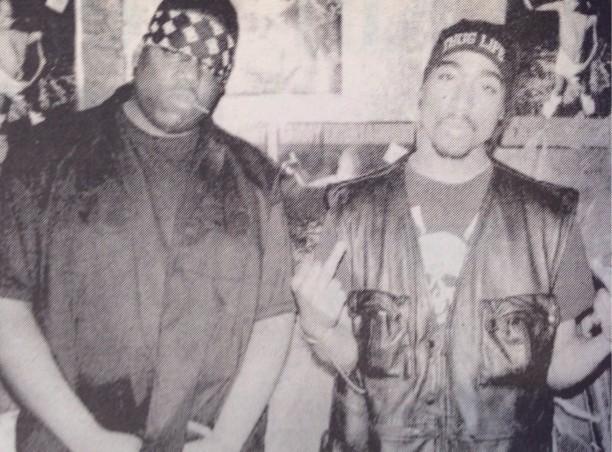By Louie Diaz Jr.
Sparked by his son’s interest in Tupac Shakur’s music, British documentary filmmaker Nick Broomfield made a film that landed him in the eye of a hip-hop storm. The documentary, Biggie and Tupac, makes startling allegations about the still-unsolved murders of legendary rappers Shakur and The Notorious B.I.G.
Broomfield, who has also made controversial documentaries about Hollywood madame Heidi Fleiss and the relationship between Kurt Cobain and Courtney Love, uncovers evidence from embittered former Los Angeles Police Department (LAPD) officer Russell Poole that suggests the rappers’ murders were connected.
More investigative journalism than art, the documentary doesn’t shoot for objectivity. It boldly states the deaths were not a result of an East Coast/West Coast feud. Instead, it links the murders to notorious gangster and Death Row Records head Marion “Suge” Knight, and claims there was a massive LAPD cover-up.
Using a confrontational style that cuts straight to the sensitive and potentially explosive subject, Broomfield’s film sheds new light on the murders, suggesting that the lazy investigations and the alleged FBI surveillance of B.I.G. on the night he was killed add to the conspiracy.
“I’m determined that there will be some positive results … justice happening is what we all want really,” Broomfield said after the film screened at the Bloor Cinema last Wednesday.
Broomfield stacks the film with interviews with a variety of odd characters including former LAPD cops who used to moonlight for Knight and Death Row, a pathetic bagman in prison and a woman who admits to having orgies with former LAPD cops.
One of the crucial characters in the film is Biggie’s mother, Voletta Wallace, who gave Broomfield a glimpse into her son’s inside world. “She was hesitant at first but when she found out we were for real she opened doors for us.”
Broomfield makes no secret of his empathy for Wallace. Through her he was able to reach B.I.G.’s close friend, rapper Lil’ Cease, both of whom were witnesses to the murder.
Wallace has recently filed a wrongful death lawsuit against the LAPD. “I’m going to do everything I can to help push the lawsuit forward,” Broomfield said. “There has to be a message that you can’t get away with murder.”
The film not only delves into the murders but also shows how the violent elements in their gangsta rap lyrics tragically made their way to the real world.
The film’s climax is Broomfield’s interview with Knight in an open prison yard. Knight’s intimidating six-foot-three, 315 pound physical presence jumps off the screen. The scene is especially tense because Broomfield asks the blunt questions that have been plaguing hip-hop fans for years. He asks Knight about his role in Biggie’s — and possibly Shakur’s — killing.
“The warden must have thought I lost my mind because I was acting so recklessly. But I wasn’t scared because it was the moment of truth and I knew the interview would end the movie,” Broomfield said.
Safe at the Canadian screening of the documentary, Broomfield joked about making an enemy of Knight.
“It’s no surprise that I’m doing the Q and A in Canada,” he said. “Someone said I could be the Salman Rushdie of doc filmmakers.”










Leave a Reply